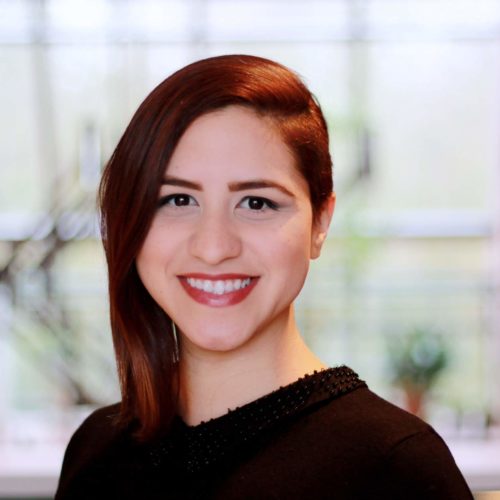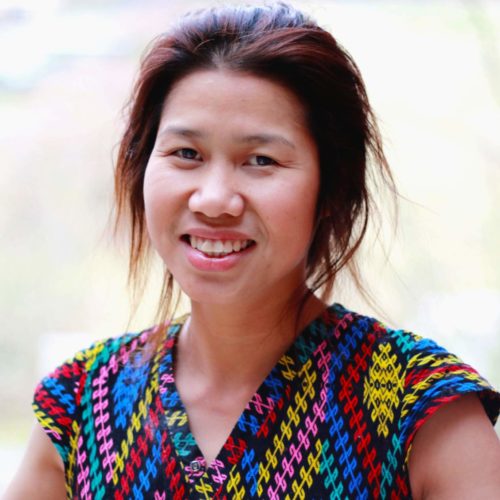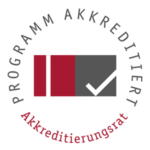-

Master of Arts
Development StudiesFull-Time Study Program
Master of Arts Development Studies
The M.A. Development has a specific focus on issues around global justice. Students learn about relevant theories as well as the practical realities of the development/aid industry. Everyone is required to do an internship and can choose a field of concentration such as gender, sustainability and migration.
The M.A. prepares thoroughly for a career in development through its emphasis on research methods and project planning. Furthermore it enables students to develop a critical view on global power relations and to question “development” from a postcolonial perspective. Being highly cosmopolitan with students from all over the world, its specific worth lies in the opportunity to assess international issues through a literally global perspective stemming from the diversity of the student body.
Concentrations
 Migration, Displacement and Development
Migration, Displacement and Development
Voluntary and forced migration, internal displacement and transnational movements, migration & development and humanitarian interventions in refugee situations are addressed in this field of concentration to give the students a comprehensive understanding of theories, policies, interventions and institutions in the field of migration and refugee studies. The concentration provides the students with critical skills to unfold the categories of the migration and refugee regime.
Courses offered
- Migration and Development
- Migration Governance and Practice
- Forced Migration and Refugee Studies
 Gender, Intersectionality and Development
Gender, Intersectionality and Development
This concentration explores the complex relations between gender, class, nationality, race, ethnicity, sexuality, and other categories of difference. The students will explore current gender policies in the gender & development sector and scrutinize by applying an intersectional lens how they can be transformed in policies that are more comprehensive.
Course offered
- Gender Research and Intersectionality
- Gender and Development
- Leadership and Organizational Culture in Caring Economics
- Sexual & Reproductive Rights and Population Policy
- Disability in the Global South (Elective)
 Sustainability and Resource Use
Sustainability and Resource Use
Students with an interest in sustainability can focus their concentration in Sustainability and Resource Use to specialize themselves in this area. They get to know key dimensions and debates around sustainability in the anthropocene and how these relate to questions around (de)growth. Students can further their expertise in electives on land and resource use and the commons.
Courses offered:
- Land Use, Land Rights and Development
- Sustainability, Climate Change and Resource Politics
- Social Sustainability and Global Value Chains
- Introduction to the Commons
General Content
 Content
Content
- Academic Writing and Presentation Skills
- Theories of Development
- Critical Reflection on Development Cooperation
- Poverty Analysis and Social Protection
- Development Economics
- Project Planning
- Empirical Research Methods
- Internship in the Field of Development Cooperation or Humanitarian Aid
- Empirical Research Methods
- Qualitative and Quantitative Research Methods
- Research Oriented Master Thesis
 Electives from different fields of Development Studies
Electives from different fields of Development Studies
Electives offered additionally to the concentrations
- Monitoring and Evaluation of Humanitarian Interventions (MEDI)
- Human Rights in Theory and Practice
- International Peace and Conflict Studies
- Childhood, Children and Child Rights
- Contemporary Religion and Development
- Disaster Response And Humanitarian Aid
- Global Public Health
 Study plan
Study plan
Study plan Effective from October 01, 2023
Application period for full-time studies
Intakes only in winter term:
Applicants who need visa:
December 1 to March 31
Applicants who do not need visa:
April 1 to August 31
term dates:
winter term: 01. October - 28. February
summer term: 01 March - 30. September
Length of the program
Full-time studies: 2 years / 4 semesters (incl. a practical training session of 8 weeks)
Study options
Full-time studies
Degree
Master of Arts in Development Studies
(120 ECTS)
Language
English
Scholarships
Friedensau Scholarship Details
Tuition
Regulations and Module handbooks
 M.A. Development Studies
M.A. Development Studies
Module Guidebook M.A. Development Studies - 2023
Effective from October 1, 2023
Module Guidebook M.A. Development Studies - 2024
Effective from October 1, 2024
Program-Specific Study regulations M.A. Development Studies
Effective from October 1, 2023
Studiengangsspezifische Studienordnung M.A. Development Studies
Gültig ab dem 01. Oktober 2023
General Study and Examination Regulations
Effective from October 1, 2023
Rahmenstudien- und Prüfungsordnung ThHF
Gültig ab dem 01. Oktober 2023
 M.A. International Social Sciences (Development Studies)
M.A. International Social Sciences (Development Studies)
No enrollment from winter term 2023/24 on. Enrollments only in M.A. Development Studies
Module Guidebook M.A. International Social Sciences - 2019
Effective from March 1, 2019
Module Guidebook M.A. International Social Sciences - 2020
Effective from March 1, 2020
Module Guidebook M.A. International Social Sciences- 2022
Effective from October 1, 2022
Program-Specific Study regulations M.A. International Social Sciences
Effective from July 1, 2018
General Study and Examination Regulations
Effective from October 1, 2023
Rahmenstudien- und Prüfungsordnung ThHF
Gültig ab dem 01. Oktober 2023
Admission
Academic Entry Requirements for MA Development Studies:
- For admission, the completion of a degree program at a university or an academically recognized college or university of applied sciences or an equivalent degree in social sciences or humanities is required and proven by a Bachelor degree, a Master degree, a Diploma, a State Examination or a Doctorate. A final grade (certificate grade) of at least 2.5 is required.
Language requirements
- All applicants must demonstrate proficiency in the English language by the Test of English as a Foreign Language (TOEFL) with a result of at least 550 (PBT = paper-based test) or 79 (IBT = internet-based test) points or a comparable performance in another test, such as the IELTS (6.0) or the Cambridge Certificate of Proficiency in English (FCE).
- Applicants who received their B.A. degree in an English-language program are exempt These applicants submit a certificate from the university indicating that the medium of instruction at the university is English.
Application Process (students who do not need visa, omit visa information):
- Submit the fully completed application package before the indicated deadline. Follow the button "INFORMATION ABOUT ADMISSION" below to start your online application process.
- The submitted application will be discussed at the academic admission and financial committees respectively (within 1 week to 1 month). The decision of acceptance will be made under consideration of the enrolment capacity and a completed financial
- The admission committees’ decision will be communicated to the applicant by the admissions office within 1 week.
- Selected applicants will be asked to transfer the down payment and deposit (see below for the fees) to the University within 2-3 weeks after the admission decision is communicated.
- Upon the receipt of the down payment and deposit, the admissions office prepares and sends to the prospective student, documents for the embassy (may take up to 1 month).
- The applicant applies for a student visa (please check in advance how much time you need in order to receive an appointment at the respective embassy. The visa application normally takes 6-8 weeks.)
- Upon the receipt of the visa, the admissions office should be notified and informed about the flight schedule taking into consideration the appointment for the pickup service.
- The admissions office offers 1 or 2 appointments for a pickup service of the prospective students from the airports in Berlin to FAU, normally on Friday or Sunday/Monday depending on the number of the prospective students. The dates for a pickup service will be communicated after the visa is received.
We are happy to advise you!
… on study programs
… on the registration
… on the finances
… or general?
If you want to register firmly for a study course, please send the signed application form to Ulrike Schultz, Prof. Dr. rer. pol., Head of study program Development Studies.
Get in contact!Internship
The Internship is an important phase for the M.A. Development Studies students, in which they combine their theoretical academic knowledge with practical experiences. During internships, students begin to develop and modify their skills required for the degree. Moreover, they get an overall perspective of their future course of action and goals.
Internship Information and Forms

The institute where I did my internship is the ‘Regional Institute of Gender, Diversity, Peace and Rights’ (RIG/DPR), which is part of Ahfad University for Women in Sudan. The students I interacted with were brilliant and interesting women, having the same kind, welcoming spirit of the people I met during my time in Khartoum.
– Arlyn Avilés

During my internship at the Community Health and Development organization (CHAD) in Myitkyina, Kachin State, Myanmar, I performed tasks such as preparing lesson plans and conducting awareness trainings, recording data for the annual and quarterly plans, attended meetings and workshops with UNICEF, visited camps for internally displaced persons.
– Dawn Lu San
